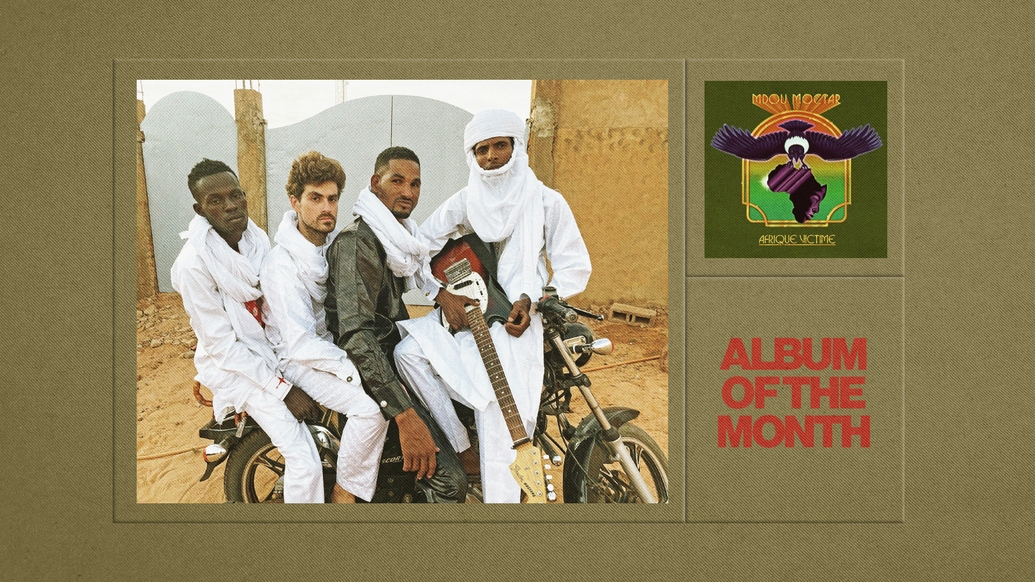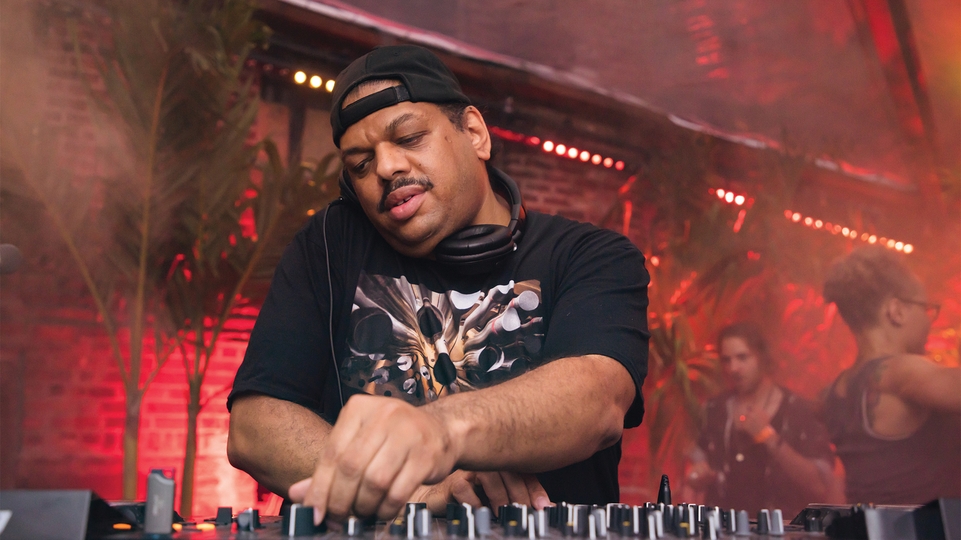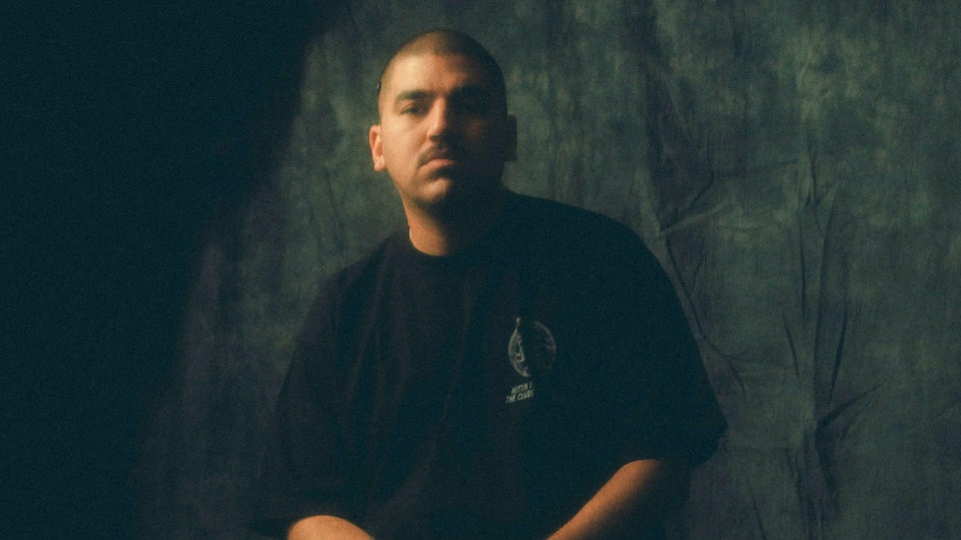
Album of the Month: Mdou Moctar ‘Afrique Victime’
Tuareg guitarist and songwriter Mdou Moctar sounds like a rock god for the future on his new album for Matador Records
The future is here. It’s just not very evenly distributed yet. The man who said that, the author William Gibson, is a pioneer of the science-fiction subgenre known as cyberpunk. Through novels like Gibson’s ‘Neuromancer’, John Carpenter’s 1981 film ‘Escape From New York’ and Ridley Scott’s ‘Blade Runner’, cyberpunk imagined a future world connected by digital networks and flying cars. But key to the genre was mayhem. The world it predicted was ramshackle. Chaotic. Punk.
If you’d asked Gibson to name the places which the future had yet to reach, he might well have said the Sahara, a vast desert which even today contends with slow internet speeds and limited transport links. The Saharan city of Agadez, home to guitarist and Tuareg pop star Mdou Moctar, is only accessible by a 28-hour bus ride. And yet, in his origin story, mystical public persona and dazzling musical ability — all in full effect on his fifth album — Moctar is pretty much cyberpunk personified.
He learned to play the guitar after fashioning one with his bare hands as a teenager, fixing five bicycle brake wires to a piece of wood and teaching himself without telling his parents. He first pricked ears in the West after featuring on ‘Music From Saharan Cellphones’, a compilation issued in 2010 on Christopher Kirkley’s American record label Sahel Sounds (sampled all over ‘The Money Store’ by Death Grips, a cyberpunk band if ever there was one).
While travelling in West Africa, Kirkley had heard about Moctar through a fizzing network of music fans sharing songs on their phones over bluetooth. He found Moctar after weeks of searching and was taken not just by his music, but also his story. Moctar reminded Kirkley of Prince, so much so that in 2015 the two of them made a film based on ‘Purple Rain’, with Moctar in the lead role. Cloaked in almost mythological levels of enigma, Moctar is like Prince for the globalised age, singing songs about heartbreak in a language only spoken by half a million people, but reaching listeners across the world.
‘Afrique Victime’ opens with 20 seconds of near- silence, footsteps approaching an amp, then a wild, serpentine guitar lick, unleashed like lightning bolts from the fingers of a Greek god. Moctar and his band quickly jig into the three- step beat that provides the heartbeat of much of the record. Forget four on the floor. This is ternary rhythm, where each beat comprises three smaller beats. One-two-three, one-two- three. The record sways like a snake being charmed. On highlights like the unbelievable ‘Tala Tannam’, it’s hard to resist swaying with it.
This is guitar music, but likely to resonate with club heads. Unlike anything you’ve ever heard in the West, it laughs at the idea that music has run out of new sounds. But there is a darker subtext. On the album sleeve a magpie holds a shiny, Africa-shaped jewel in its talons, either unaware or unbothered that its prize has a human face, shedding a tear as it’s carried away. “Africa is a victim of so many crimes. If we stay silent, it will be the end of us,” sings Moctar on the title track, in his native Tamasheq.
‘Afrique Victime’ is Moctar standing for the continent of his birth, reminding us of the debt owed to Africa by almost all modern music. Sounding like a rock god from tomorrow, Moctar embodies an imagined future, a world connected by Bluetooth and bus rides, where a guitarist from the Sahara holds as much cultural cache as a Western pop star. What a world that would be.





